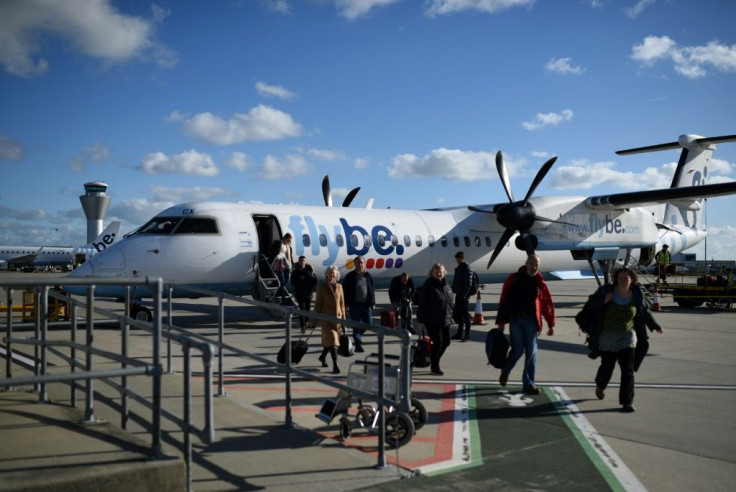UK Airline Flybe Nearing Bankruptcy: Reports

Struggling British regional airline Flybe could be on the brink of bankruptcy, according to reports Wednesday, as the coronavirus epidemic takes a heavy toll on airlines around the world.
British media reported the company, which avoided going bust in January only after being granted a tax holiday by the UK government, could collapse after failing to secure a ?100 million ($129 million, 115 million euros) state loan.
The BBC said it understood that Prime Minister Boris Johnson's government was now unlikely to give the airline the loan, which the carrier had hoped to secure to help stabilise the business.
The COVID-19 virus' impact on travel "has made a bad situation much worse," sources told the British broadcaster.
Meanwhile the Financial Times reported the carrier may only have enough financial resources to survive "until the end of this month".
The Department for Transport, Flybe and its owners the Connect Airways consortium -- led by Virgin Atlantic and also comprising investment firm Cyrus and infrastructure specialist Stobart -- all declined to comment.
The prime minister's official spokesman said: "We do not comment on commercially sensitive matters."
But added: "We are fully committed to providing and safeguarding regional growth and connections."
A source familiar with the matter told AFP it was "premature" to say the airline would go bankrupt, noting discussions had been ongoing "for a couple of months".
Employing 2,000 people, Flybe has failed to turn around its fortunes since being purchased by the consortium last year, initially owing to weak demand and fierce competition.
That has now been compounded by the coronavirus, with a slew of airlines cancelling flights and warning profits would take a hit from decreased demand.
The no-frills airline carries around eight million passengers annually and flies from 43 airports across Europe and 28 in Britain.
It is the biggest operator of UK domestic flights and the main carrier at regional airports such as Aberdeen, Belfast and Southampton.
But small British airlines have suffered recently from volatile fuel costs and a weak pound.
Following Flybe's tax deferral earlier this year, rival companies including British Airways-parent IAG complained to the European Union that it was receiving unfair state aid.
The government has said its assistance does not breach EU rules and that help is based on the importance of the company's domestic services and regional economic reliance on them.
However, that contrasted with the fate of British holiday giant Thomas Cook, which collapsed without government assistance last September, causing the loss of 22,000 jobs worldwide and stranding 600,000 holidaymakers abroad.
The Unite union said it was seeking an urgent meeting with ministers at the Department for Transport ministers to discuss the situation.
"The government would be wholly negligent to allow Flybe to fall into administration, rather than demonstrating it has learned the lessons from... Thomas Cook," it said.
© Copyright AFP {{Year}}. All rights reserved.





















